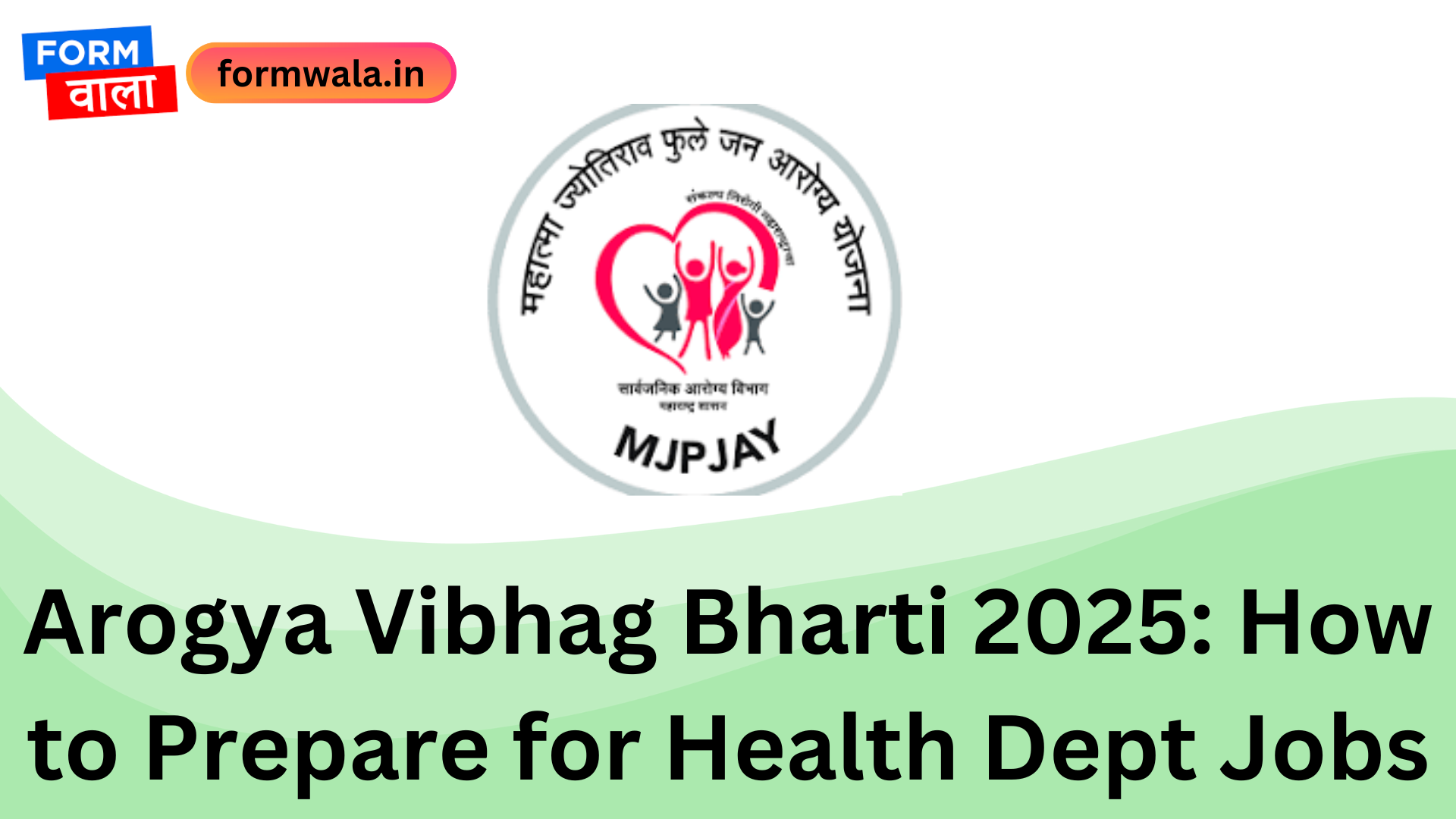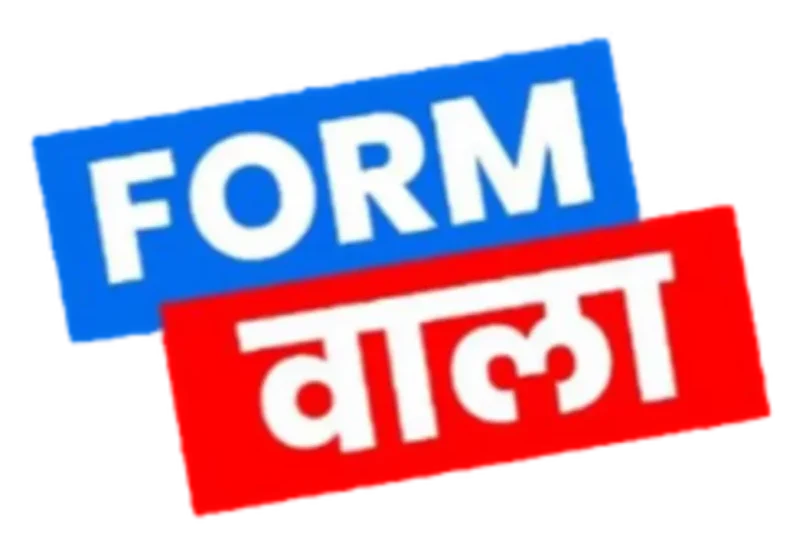A notice has been provided with all the details for Maharashtra Arogya Sevak Recruitment 2025 Arogya Sevak Recruitment 2025. Candidates who are interested and fulfill all the eligibility criteria for the following vacancies can read the notification and apply online. On this page we provide this recruitment complete syllabus latest update exam pattern and also exam date.
Maharashtra Arogya Sevak Syllabus 2025 – Overview
| Organization Name | Maharashtra Arogya Vibhag |
| Post Names | Arogya Sevak Bharti |
| No. of Posts | Notified Soon |
| Application Mode | Online |
| Exam Date 2025 | Notified Soon |
| Selection Process | Written Test and Interview |
| Job Location | Thane, Maharashtra |
| Category | Syllabus and Exam Pattern |
| Official Site | arogya.maharashtra.gov.in |
Maharashtra Arogya Sevak Exam Pattern 2025
Duration : 120 Minutes
| S.No. | Subject | No.of Question | Marks |
| 1. | Technical / Academic related qualification | 80 | 160 |
| 2. | Marathi, English, General Knowledge and Mathematics | 20 | 40 |
| Total | 100 | 200 |
Maharashtra Arogya Sevak Syllabus 2025
English/Marathi :
1. Grammar (Synonyms, Autonyms, Spelling, Punctuation, Tense
2. Vocabulary (Use of Idioms and Phrases and their meaning, Expressions)
3. Fill in the blanks in the sentence
4. Simple Sentence structure
General Knowledge :
1. Current Affairs (India and Maharashtra)
2. Indian History- Civics
3. Indian Geography
4. Indian Constitution
5. General Science
6. Sports and Culture
7. Right to Information Act 2005 and Maharashtra Public Service Act 2015
8. Information and Technology Related Basic Knowledge
Logical Ability :
1. Aptitude Test
2. Basic Arithmetic Knowledge
3. Mathematics (Numeric, Algebra, Geometry, Statistic) General Science (Physics, Chemistry, Biology, and Environment Science
Concerned Subject :
Molecular Biology-its role in Clinical Biochemistry :
1. Basic concepts of DNA & RNA metabolism Replication
2. Polymerase chain reaction-their role in medicine
3. Gene therapy
4. Transcription and Translation-importance of their inhibitors
5. Biochemical role of DNA and RNA
6. Structure
7. Genomes
8. Recombinant DNA technology
9. Genomics and Bioinformatics their relevance to medicine
Biochemical basis of Hormone Action :
1. Signal transduction
2. Thyroid and parathyroid
3. G-Proteins coupled receptors and second messengers
4. Communication among cells and tissues
5. Role of leptins and adipocytokines
6. Molecular mechanism of action of Steroid hormones
7. Hormones of the pancreas
Clinical Biochemistry :
1. Adrenal and Pancreatic function tests
2. Water and electrolytes balance and imbalance
3. Acid-base balance and disorders
4. Tumor markers and growth factors
5. Organ function tests: Liver function tests
6. Thyroid function tests
7. Biochemical changes in pregnancy and lactation
8. Total Quality Management of Laboratories, Internal quality control, External quality control, Accreditation of laboratories
9. Kidney function tests
Anatomy Syllabus :
1. Cartilages of the larynx
2. Abdominal quadrants
3. Vermiform appendix-Positions of the appendix
4. Names of Cranial Nerves
5. Cardiovascular system and lymphatic system-Blood supply of heart + lymphatic drainage of heart
6. Difference between male and female pelvis
7. Triangles of the neck, contents of the anterior triangle
8. Difference between thick and thin Skin
9. Thoracic outlet syndrome
10. Paranasal sinuses with applied anatomy
11. Pharyngeal arches
12. Layers of Scalp
13. Annual pancreas
14. History of cardiac muscles
Gastrointestinal System Syllabus :
1. Introduction of G.I. Physiology: General organization of G.I. tract
2. Pathophysiology of diarrheal disease
Nutrition :
1. Environmental Physiology
2. Diet during infancy and childhood
3. Man in the cold environment
4. Diet during pregnancy and lactation
5. Reproduction
6. Man in the hot environment
Kidney :
1. Renal Tubular function-I
2. Micturition
3. Renal tubular function-II
General :
1. Functional anatomy of the eye
2. Auditory pathway
3. Olfaction
4. CSF
5. Physiology of pain
6. Brain stem reflexes, stretch reflexes and tendon reflexes
7. Speech
8. Basal ganglia
9. Functional anatomy of the ear: impedance matching
Physiology Syllabus :
Nerve Muscles :
1. Excitation-Contraction coupling
2. Neuromuscular transmission
3. Muscle proteins(Biochemistry)
Blood :
1. Anemia
2. Hemostasis
Respiratory System :
1. Mechanics of respiration-I
2. Mechanics of respiration-II
Respiratory System :
1. Mechanics of respiration-I
2. Mechanics of respiration-II
Arogya Vibhag Bharti Preparation Tips 2025
Candidates are advised to follow the below-provided tips to perform well :-
1) Analyse the Syllabus
- Go through the whole syllabus at least once to Prepare efficiently for the post
- Once you complete the syllabus, give enough time for revision and make sure to make short notes. They will help you in quick revision.
- Begin with understanding the whole syllabus and the structure of the exam to be taken.
- Devote your time separately for General Intelligence, Reasoning, General Knowledge and Mathematics sections.
2) Get used to the exam pattern
- The following step in preparing for the Arogya Vibhag Bharti involves grasping the Arogya Vibhag Bharti Exam pattern and marking scheme.
3) Revise daily
- Try to reserve some time every week to go back and revise the topics that you may have studied earlier.
- Make sure you don’t forget important concepts or information.
4) Solve previous year question papers
- Solve previous years papers to understand the exam pattern and difficulty level.
- Time yourself to improve your speed and accuracy.
- Analyze mistakes and focus on weaker sections.
5) Work on weak areas
- Know your weaknesses and work harder to overcome them. Hence it can be concluded that practicing these areas can contribute to your good exam results.
6) Make a timetable
- Practice solving questions within a time limit.
- Prioritize questions that you find easier to score well.
- Develop strategies to manage time effectively during the exam.
7)Don’t Touch New Topics:
- In the last phase of exam preparation, do not study any new topic, as you will not understand the concept well.
- This risks creating unnecessary confusion. Better to revise the topics you have already studied.
8)Be Positive and Confident:
- Face the exam with a positive attitude. Trust your preparation and give your best.


